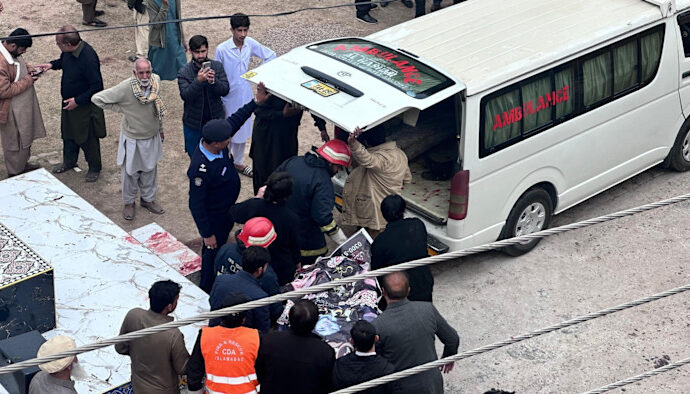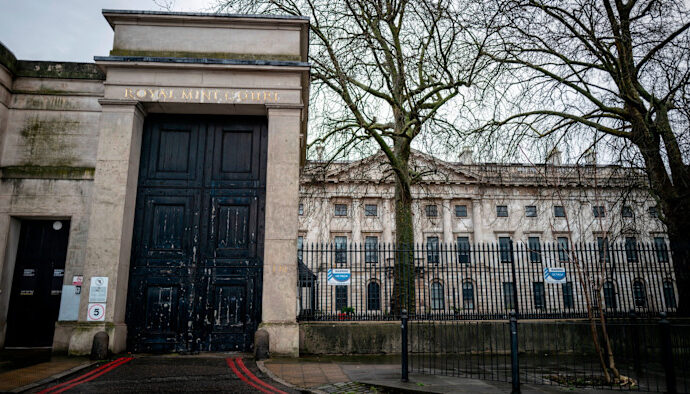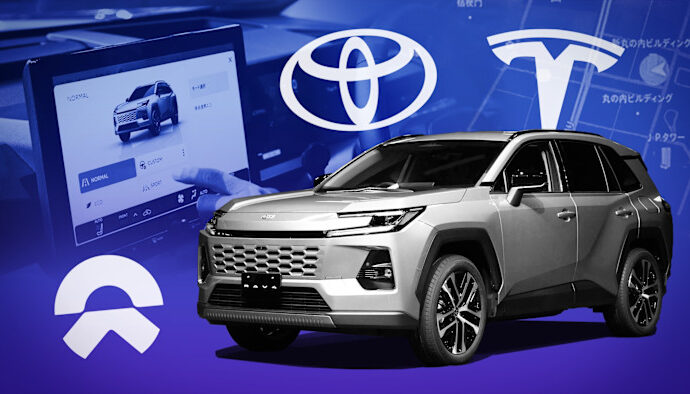Receive free Emerging markets updates
We’ll send you a myFT Daily Digest email rounding up the latest Emerging markets news every morning.
President Xi Jinping was set to arrive in South Africa to lead a Chinese push to expand the Brics emerging-market bloc, ahead of a gathering in Johannesburg of the leaders of dozens of developing nations.
The Chinese leader will pay a state visit to South Africa’s President Cyril Ramaphosa on Tuesday, as the leaders of Brazil, Russia, India, China and South Africa consider opening the forum up to new members at a summit that will test Beijing’s ambitions to remake the grouping.
Xi, making only his second overseas trip this year and with troubles mounting over a domestic economic slowdown, said in an article published in South African newspapers on Monday that “more and more countries are knocking on the door of Brics, aspiring to join our co-operation”.
China is pushing for an expanded membership that could include Argentina, Iran, Indonesia, Saudi Arabia and about 20 other governments that have formally applied, according to people briefed on Beijing’s position. This would meet China’s ambitions to build a more formidable rival to the G7, they added.
But in the run-up to the summit that begins on Tuesday, India and Brazil have been more sceptical about adding new members, representing tensions over whether the Brics should mostly stay as an economic forum for diverse developing nations. Diplomats have been working on membership criteria for approval by the Brics leaders.
India is currently the only strongly performing Brics economy as China confronts a slowdown and the three other members have had lacklustre growth in the past decade.
South Africa, which was the first country to be added to the original Bric grouping in 2010, has signalled that it does not see further expansion in anti-western terms.
“An expanded Brics will represent a diverse group of nations with different political systems that share a common desire to have a more balanced global order,” Ramaphosa said on Sunday.
India’s Narendra Modi and Brazil’s Luiz Inácio Lula da Silva are also set to travel to the gathering in Johannesburg, but Russia’s Vladimir Putin will stay behind. The Russian leader will not attend after South Africa faced an obligation to arrest him over his indictment by the International Criminal Court for war crimes in the invasion of Ukraine.
South Africa has been trying to balance closer ties with Russia and China while mollifying the US and preserving threatened trade links over what has been seen in Washington as its equivocation in condemning the war.
“While some of our detractors prefer overt support for their political and ideological choices, we will not be drawn into a contest between global powers,” Ramaphosa said. “Multilateralism is being replaced by the actions of different power blocs, all of which we trade with, invest with, and whose technology we use.”
India’s foreign secretary Vinay Kwatra said ahead of the summit that New Delhi had a “positive intent and an open mind when it comes to the Brics expansion”. But he also said there needed to be “consensus” on the criteria for taking in new members.
“Those are the subject matters of ongoing current discussions . . . and I would not want to prejudge the outcome of these discussions,” he added.


